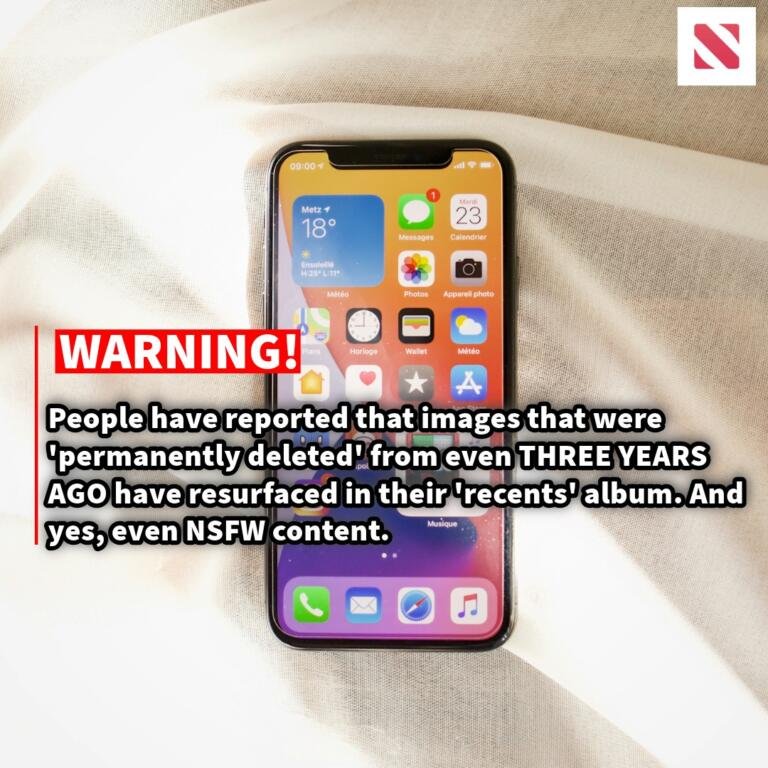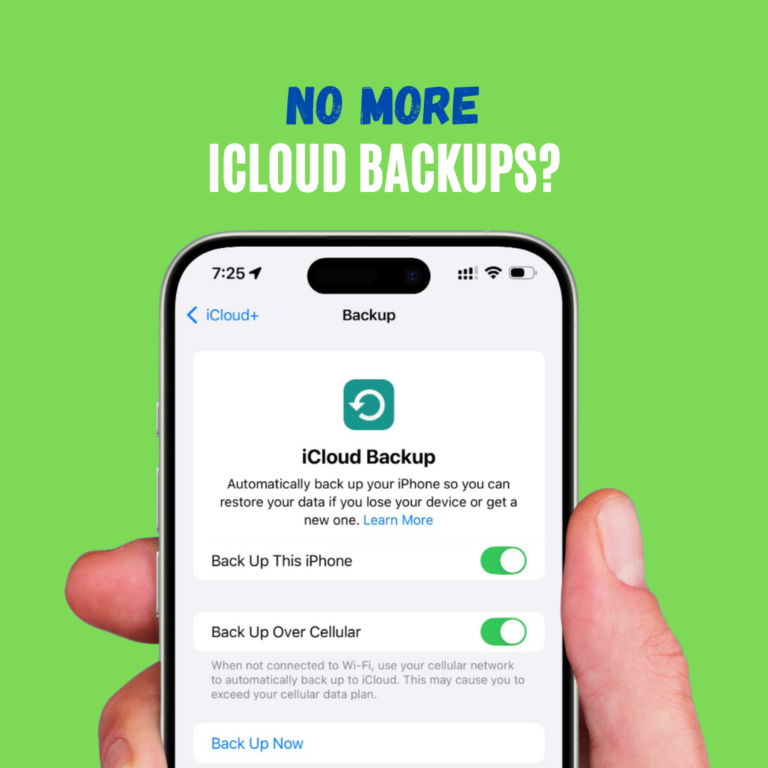People have reported that images that were ‘permanently deleted’ from even THREE YEARS AGO have resurfaced in their ‘recents’ album. And yes, even NSFW content.
Updating your iPhone or iPad to iOS 17.5 has caused a furor among users. Many users have found photographs they thought were permanently wiped in their ‘Recents’ album, including ones from three years ago. This disturbing issue is common and has left many feeling violated and frightened about their privacy.
Not only innocuous photos resurface. NSFW content has arrived unexpectedly, according to users. If the gadget is shared or used professionally, this could be embarrassing or detrimental. Unexpectedly appearing sensitive or explicit content calls into doubt Apple’s data management and privacy rules.
The fact that this issue occurs on factory reset devices sold or given away is even more troubling. The photographs were likely hidden or transferred instead of removed from the device’s storage. New owners of these devices may face a privacy nightmare when iOS 17.5 restores hidden photographs to the ‘Recents’ album.

Angry iPhone and iPad customers feel misled by a firm that has long preached its privacy and data security. Many wonder how Apple’s extensive testing and quality assurance could have missed such a major problem. The issue damages the company’s reputation for data security and handling sensitive data.
Apple has not released a statement addressing the issue or offering a solution. The company’s silence has fostered discontent and conjecture, with some customers pushing for a rollback or patch to permanently remedy the issue. Numerous users advise against updating to iOS 17.5 to avoid similar issues.
This issue affects more than privacy. For people who sell or donate their gadgets, the new owner may access their personal data, including sensitive photographs. This breaches the privacy of the original owner and the expectations of the new owner, who may have expected a device without data.
The revelation also casts doubt on Apple’s data erasure methods. The ‘permanently erase’ option securely deletes undesired content from devices. The reemergence of old photographs implies that Apple’s deletion procedures may not be as thorough as thought. Some are reconsidering Apple’s built-in data management capabilities in favor of third-party solutions with better protection.
Legal experts say Apple could face major legal issues if it mishandles consumer data. The corporation could be sued for failing to preserve user privacy and warn users about its data deletion limitations. This might affect Apple’s finances and reputation, amplifying the iOS 17.5 update’s negative effects.
The issue is especially problematic for iPhone and iPad-using businesses and professionals. Previously deleted corporate or client data may now emerge, posing a risk of confidentiality and trust breaches. This may affect consumers and businesses that use Apple’s technologies.
The event has also raised questions about digital data and the difficulties of data deletion in the digital era. As more of our lives are digital, data security and reliability become more vital. Apple’s iOS 17.5 issue shows the challenges of permanently erasing data.
After these findings, some users have posted on social media about the risks of updating to iOS 17.5. Although this grassroots effort has raised awareness, it also highlights Apple’s lack of formal communication. Users are left to solve the problem without company support.
The outcry has also raised questions about iOS updates and Apple openness. Users want more extensive release notes and information about update risks. This may assist people decide when and how to upgrade their gadgets.
Those that updated to iOS 17.5 face the fallout. Some have manually deleted the reappeared photographs, while others are considering a factory wipe. Without identifying the reason, these methods may only provide temporary relief.
The iOS 17.5 debate highlights the importance of data security and privacy in the digital era. We must adapt to changing technology to manage and protect personal data. Users are more aware than ever of software update hazards and the need to secure their data.
The iOS 17.5 update damaged Apple’s privacy and security reputation. The company must respond quickly and forcefully to fix the problem and restore user confidence. Whether this requires technical fixes, greater communication, or both is unknown. However, the incident has shown the necessity to better data management and protection.
The iOS 17.5 fiasco emphasizes user faith in tech companies. As we rely more on our gadgets to hold and manage personal data, we need to trust that firms will protect it. Apple must prove it can meet these expectations and avert future issues.
"Note:We may receive a affiliate commission when you purchase products mentioned on our website."






